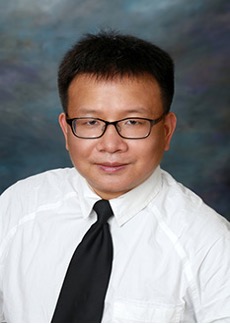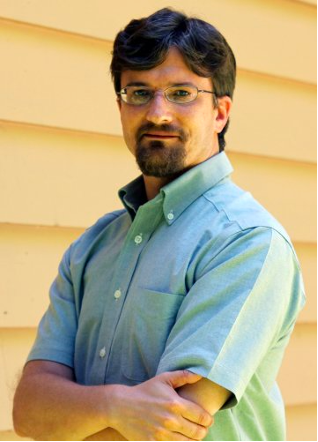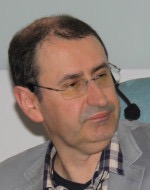CSNet 2023 Keynotes speakers
Keynote #1
Title: Toward Privacy-Preserving Aggregate Reverse Skyline Query with Strong Security
Abstract: It has been witnessed that Aggregate Reverse Skyline (ARS) query has recently received a wide range of practical applications due to its marvelous property of identifying the influence of query requests. Nevertheless, the query users may hesitate to participate in such query services as the query requests and query results may leak sensitive personal data or valuable business data assets to the service providers. To tackle the concerns, a promising solution is to encrypt the query requests, conduct the ARS queries over encrypted query requests without decrypting, and return the encrypted query results. Unfortunately, many existing solutions are either deployed over a two-server model or unable to fully preserve query privacy. In this talk, we present a novel privacy-preserving aggregate reverse skyline query (PPARS) scheme on a single server model while ensuring full query privacy. Specifically, we first transform the problem of ARS query into a combination of set membership test and logical expressions. Then, by employing the prefix encoding technique, bloom filter technique, and fully homomorphic encryption, we run the transformed logical expressions to obtain the encrypted aggregate values without leaking query requests, query results, and access patterns. Furthermore, we propose an interpolation-based packing technique to improve the communication efficiency of PPARS. Detailed and formal security analysis demonstrates that our proposed schemes can guarantee strong security. In addition, extensive experiments are conducted, and the results validate the efficiency of our proposed schemes.

Rongxing Lu
(University of New Brunswick, Canada)
Bio: Rongxing Lu is a Mastercard IoT Research Chair, a University Research Scholar, a full professor at the Faculty of Computer Science (FCS), University of New Brunswick (UNB), Canada. Before that, he worked as an assistant professor at the School of Electrical and Electronic Engineering, Nanyang Technological University (NTU), Singapore from April 2013 to August 2016. Rongxing Lu worked as a Postdoctoral Fellow at the University of Waterloo from May 2012 to April 2013. He was awarded the most prestigious “Governor General’s Gold Medal”, when he received his PhD degree from the Department of Electrical & Computer Engineering, University of Waterloo, Canada, in 2012; and won the 8th IEEE Communications Society (ComSoc) Asia Pacific (AP) Outstanding Young Researcher Award, in 2013. Dr. Lu is an IEEE Fellow. His research interests include applied cryptography, privacy enhancing technologies, and IoT-Big Data security and privacy. He has published extensively in his areas of expertise. Currently, Dr. Lu serves as the Chair of IEEE ComSoc CIS-TC (Communications and Information Security Technical Committee), and the founding Co-chair of IEEE TEMS Blockchain and Distributed Ledgers Technologies Technical Committee (BDLT-TC). Dr. Lu is the Winner of 2016-17 Excellence in Teaching Award, FCS, UNB.
Keynote #2
Title: Privacy options for central bank digital currencies (CBDCs)
Abstract: Many countries are considering launching digital currencies, called Central Bank Digital Currencies (CBDCs), to offer flexible payments backed by the government and to compete with cryptocurrencies and stablecoins. A contentious issue in the technological design of a CBDC is privacy. How do we balance the interests of privacy-conscious users, commercial data holders, and law enforcement? Should a CBDC be anonymous like central bank cash or should it be traceable like commercial bank accounts? We explore this issue by identifying stakeholders and key conflicts amongst them. We provide a taxonomy of privacy vs auditability that considers soft institution-based approaches versus hard technology-based solutions. We consider solutions based on modern cryptographic approaches (e.g., zero knowledge proofs and secure multiparty computation) and argue that the current crop of proposals do not adequately address crime. We conclude with a set of open research problems for overcoming the roadblocks of privacy-friendly CBDCs.

Jeremy Clark
(Concordia University, Canada)
Bio: Jeremy Clark is an associate professor at the Concordia Institute for Information Systems Engineering. At Concordia, he holds the NSERC/Raymond Chabot Grant Thornton/Catallaxy Industrial Research Chair in Blockchain Technologies. He obtained his PhD from the University of Waterloo, where his gold medal dissertation was on designing and deploying secure voting systems including Scantegrity—the first cryptographically verifiable system used in a public sector election. He wrote one of the earliest academic papers on Bitcoin, completed several research projects in the area, and contributed to the first textbook. Beyond research, he has worked with several municipalities on voting technology and testified to both the Canadian Senate and House finance committees on Bitcoin.
Keynote #3
Title: AI-Powered, Cyberdeceptive Networks
Abstract: Terminating all detected network intrusion attempts as quickly and decisively as possible is the instinctive goal of most network defenders and defense technologies. But doing so has an unfortunate side-effect: It provides quick and reliable feedback to adversaries regarding the success of their attacks, helping them identify and abandon their unsuccessful strategies and focusing their efforts toward more dangerous attack techniques. This talk will present research that instead adopts the reverse philosophy that network defenses should engage detected attackers more, not less. By integrating deceptive attack-responses that coordinate networks with endpoint and software layers, attacks are reenvisioned as information-gathering opportunities for defenders. Instrumental to this effort is the rise of new innovations in generative AI, and a new wave of cross-disciplinary research that spans the domains of networking security, software engineering, cloud computing, economics of security, and risk management.

Kevin Hamlen
(University of Texas Dallas, USA)
Bio: Dr. Kevin W. Hamlen is the Louis A. Beecherl, Jr. Distinguished Professor of Computer Science at The University of Texas at Dallas (UTD), and the Executive Director of UTD’s Cyber Security Research and Education Institute. His research resides at the intersection of programming language theory and security, including cyberdeceptive software engineering, binary software security hardening, formal methods-based validation, and secure cloud computing, and has been supported by awards from DARPA, Army, Navy, Air Force, NSA, and NSF, including receiving the NSF CAREER and AFOSR YIP awards. He received his BS, MS, and PhD degrees from Carnegie Mellon and Cornell University.
Keynote #4
Title: A new research landscape for 6G cybersecurity in Europe
Abstract: The talk will present the current guidelines in terms of research in cybersecurity for 6G in Europe. This presentation will highlight the transformation of the cybersecurity landscape, on one hand in terms of technologies for an increasingly distributed cellular world, and on the other hand in terms of the scope of the meaning of cybersecurity, with aspects as societal values and sovereignty becoming important aspects for the solutions that are expected for the future.

Rui L. Aguiar
(University of Aveiro, Portugal)
Bio: Rui L. Aguiar (born 1967) is currently a Full Professor at the University of Aveiro. He is currently coordinating a research line in Instituto de Telecomunicações, in the area of Networks and Services. He has been serving as Steering Board Chair of Networld Europe, the European ETP representing the telecommunications community, engaged in the discussions of the future European R&D work programs for telecommunications. He was previously associated with Carnegie Mellon University, the Universidade de Uberlandia. He has been an advisor for the Portuguese Secretaria de Estado das Comunicações and a member of the task force for 5G cybersecurity. He is the editor of the Portuguese cybersecurity report on “Tecnologias Emergentes (Emerging Technologies).” He is a Chartered Engineer, a Senior Member of IEEE, and a member of ACM. He is a regular keynote speaker in the future of mobile communications and digital society, with dozens of talks worldwide. He is an associated editor of Wiley’s Emerging Telecommunication Technologies and Springers’ Wireless Networks. He has more than 500 papers published.








